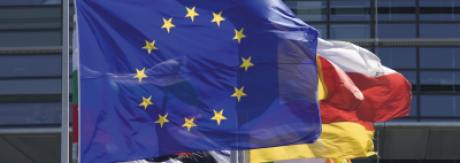
Biofuels: Who’s subsidising whom?
A new issue now tops EU biofuels debates: subsidies. First reports suggest that EU biofuels policy is costly, and that subsidies paid to biofuel producers are lush. A fuller exploration of the economics (and subsidies) of EU biofuels reveals that biofuels are among the best economic development - and cheapest carbon abatement - vehicles we have.
In other words, the biofuels industry welcomes a serious economic debate. Unfortunately, serious debate is unlikely if the past is any guide.
Earlier the year, the main issue was land-grabbing, a potent and even stomach-wrenching argument whose only flaw is that there really isn't any, absolutely zero, land-grabbed biofuel being exported to Europe.
While the facts of land-grabbing prove that EU biofuels policy was unfairly maligned by NGOs on this issue, the public has never received this update.
Prior to that, the major issue was food v fuel, driven by inexorable rises in food prices coinciding with biofuels mandates. The first major problem with that argument is that science increasingly rejects it, and the best available science (accepted by the European Commission) concludes that EU biofuels mandates are responsible for about a 1%-2% increase in corn, wheat and sugar prices over an entire decade.
The second major problem is that corn and wheat aren't actually expensive. While NGOs were quick to point out a spike in corn prices last summer, none have bothered to point out that the corn price has quietly and steadily fallen; and is now lower than before the drought. One other fact also not well publicised, according to Oxfam's own methodology, is that the cost to feed someone for an entire year on Hungarian-grown biofuel feedstock would be €0.09/day at today's prices.
European biofuels provide jobs to the poorest communities in Europe, encourage agricultural investments, and provide a reason for farmland to be farmed, thereby helping (without subsidies) to stop a two decade decline in agriculture. Europe’s ethanol producers use only home-grown crops that do not result in net decreases in exports of feed crops from Europe to the rest of the world. Therefore, the amount of ILUC created from expansion of the renewable ethanol industry within Europe is exactly zero.
Farmers respond to biofuels mandates by growing more crops on the same land, and ethanol plants produce just as much high-protein animal feed as biofuel, in the process lowering imports of high-ILUC soymeal from South America, thereby serving to decrease net global ILUC.
Read the entire article at EurActive.com.
Follow the developments within biorefining. hveiti regularly informs about our efforts to improve the environment.
Copyright © 2011 | Hveiti | Design Rabotnik




